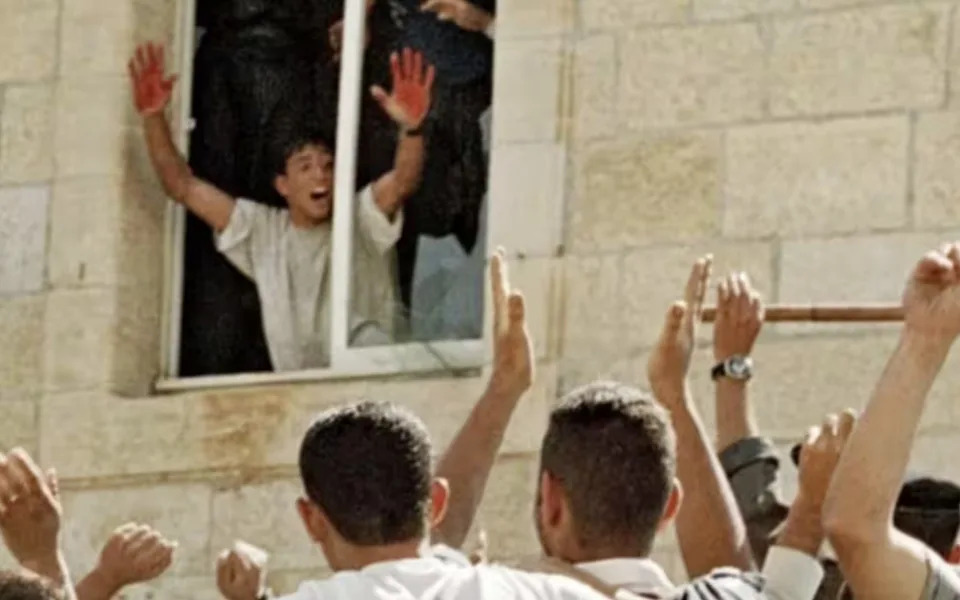
Smoke billows from the site of an Israeli airstrike that targeted the southern Lebanese village of Khiam, Oct 3 - AFP
The Telegraph: Joe Biden has said he is discussing possible Israeli strikes on Iran’s oil production, sending crude prices spiking just a month before the US presidential election.
Oil jumped five per cent after his comments jolted markets, even though the United States president ruled out immediate retaliation from Tel Aviv for Tehran’s missile barrage earlier this week.
When asked by a reporter if he supported Israel striking Iran’s oil facilities, Mr Biden replied: “We’re discussing that. I think that would be a little... anyway.”
A rise in oil prices and the cost of living could become a significant electoral liability for Mr Biden’s vice president, Kamala Harris, as she fights a close presidential race against Donald Trump.
Mr Biden added: “First of all, we don’t ‘allow’ Israel, we advise Israel. And there is nothing going to happen today.”
His comments came only 24 hours after he had said any Israeli retaliation should be “proportional”.
The situation in the Middle East had earlier appeared to escalate further when the Lebanese army returned fire at Israeli forces for the first time in more than a year.
Lebanon’s army said it had fired back after two soldiers were killed in Israeli strikes along their shared border.
The army, which has close UK ties and millions of pounds of British support and training, has for the past year kept out of artillery exchanges between Israel and Hezbollah.
One soldier was killed during an evacuation and rescue operation with the Lebanese Red Cross in Taybeh village.
Another was killed after the Israeli enemy targeted an army post in the Bint Jbeil area, the army said and “the personnel at the post responded to the sources of fire”.
The military is often overshadowed by Hezbollah forces and the country’s economic crisis has left it struggling to pay soldiers’ wages, but it is still seen by many Lebanese as a unifying institution.
Sources close to the army told The Telegraph its leadership had last year given soldiers orders to keep out of the conflict between Hezbollah and Israel.
However once targeted, it had little option but to respond, said experts.
Lina Khatib, of London’s Chatham House think tank, said: “The targeting of the Lebanese army is an important escalation as it flies in the face of Israel’s claim that its fight is with Hezbollah, not the Lebanese people.
“The Lebanese army has huge respect among all Lebanon’s communities who see it as the only trustworthy national institution.
“The army cannot be seen to be standing still after Israel attacks it.”
Israel’s military also released footage of reservists operating in southern Lebanon in recent days. Troops with the Etzioni Brigade were the first reserve brigade to enter Lebanon amid the ongoing war.
At least 28 on-duty medics have been killed in the past 24 hours, the World Health Organization chief said.
“Many (other) health workers are not reporting to duty and fled the areas where they work due to bombardments,” director-general Tedros Adhanom Ghebreyesus said.
The Israel Defence Forces said it had confirmed the death of the de facto Hamas prime minister of Gaza Strip in another air strike three months ago.
Rawhi Mushtaha was described as Hamas leader Yahya Sinwar’s “right-hand man and one of his closest associates.”
The IDF also said they had killed a Palestinian man infamous for his role in the lynching of two Israeli soldiers in Ramallah nearly 25 years ago.

Aziz Salha, who in 2000 lynched two Israeli soldiers in Ramallah (pictured), has been killed - Chris Gerald/AFP/Getty Images
An image of Aziz Salha in 2000 displaying his bloodied hands to a mob in the early weeks of the Second Palestinian uprising, or Intifada, became a defining image of the conflict.
Two reservist soldiers were killed in October 2000 after taking a wrong turn and ending up in the Palestinian Authority-controlled city of Ramallah in the West Bank. A police station where they were held was overrun by a mob.
Salha was killed in a strike in Gaza, Israel said.
Israel’s military and intelligence agencies said he had been targeted three months ago while hiding in a fortified tunnel, along with Sameh al-Siraj, who held the security portfolio in Hamas’s political bureau, and Sami Odeh, the head of Hamas’s “general security mechanism.”
Satellite pictures meanwhile, showed that Iranian missiles hit a hangar and caused craters at Israel’s Nevatim air base.
The Planet Labs image, published by the Associated Press, showed four potential impacts at the base in southern Israel, one of three military facilities the Iranians claimed to have targeted.
Analysis of video imagery from Tuesday’s attack suggested the two other bases, one north of Tel Aviv and one south, may also have been hit or come close to being hit, said geo-location specialists.
Meanwhile, Rachel Reeves warned that escalating tensions in the Middle East posed “a very real risk both to the UK and to the global economy”, adding that the spike in oil could push up prices and exert a drag on the economy.
“There’s a risk on inflation and on GDP,” the Chancellor told reporters. “I think so far the impacts are being contained. But obviously we’ve got to keep an eye on these things.”
Echoing concerns by Andrew Bailey, the Governor of the Bank of England, Ms Reeves said: “The biggest impact so far in terms of the economics of what’s happening in the Middle East is on shipping costs because people are having to divert from using the Red Sea. “
She added that while the focus remained on hostages trapped in Gaza and “people who have been uprooted and lost their lives”, she said that “obviously, for the UK and other countries around the world, there is also an economic impact”.












Leave a review